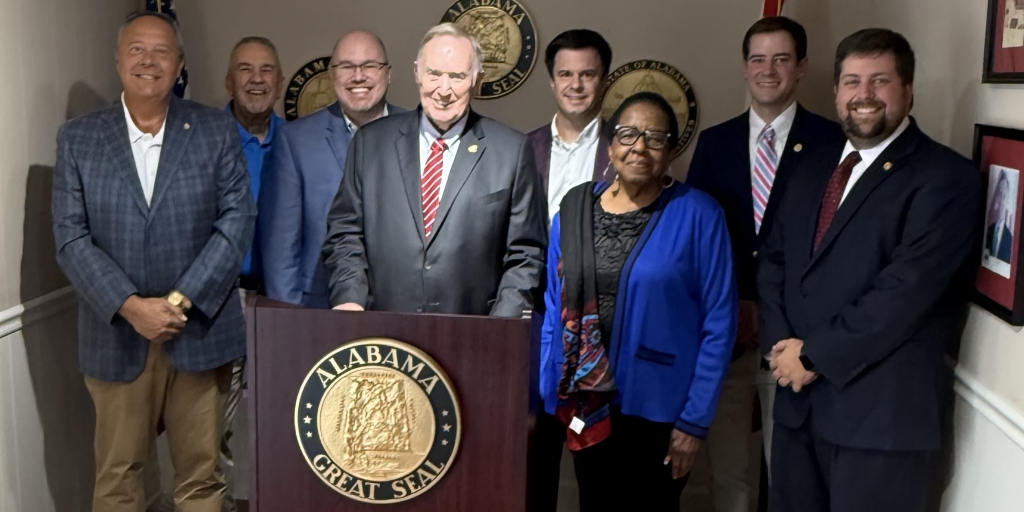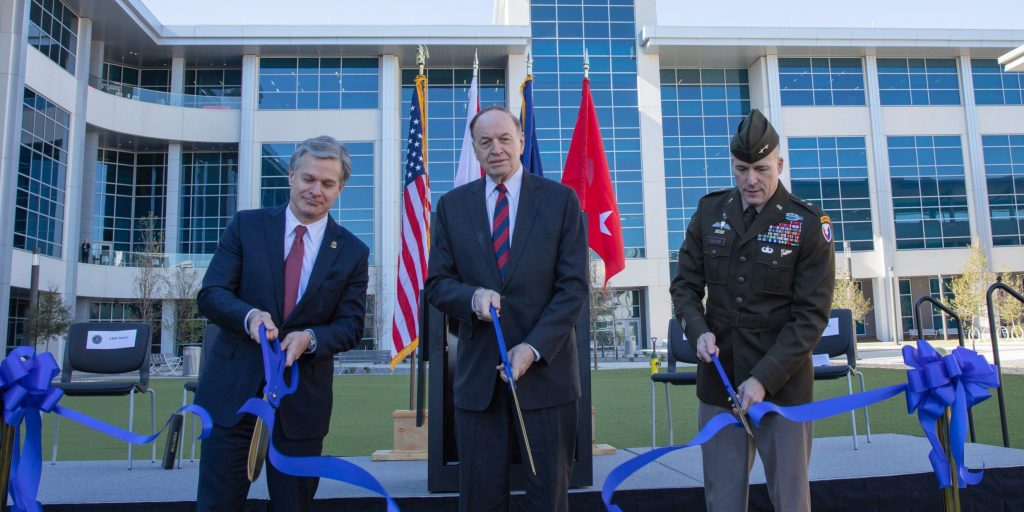U.S. Senator Richard Shelby (R-AL), vice chair of the Senate Committee on Appropriations, on Wednesday announced the committee’s work in advancing three fiscal year 2022 (FY22) bills for multiple subcommittees relating to priorities that are significant to the Yellowhammer State. Each bill received a favorable committee report with bipartisan support.
The committees include: Energy and Water Development and Related Agencies; Agriculture, Rural Development, Food and Drug Administration, and Related Agencies; and Military Construction, Veterans Affairs, and Related Agencies.
Alabama’s senior senator, known for his work in delivering funding priorities crucial to the state’s continued growth, touted the bills’ advancement out of committee.
“I am pleased we have advanced these three important appropriations bills, which include a number of funding measures that offer real support for the people of Alabama,” said Shelby. “This action by the committee helps further our work to secure resources for several significant priorities, including water infrastructure projects, farmers in rural communities, and assistance for our brave veterans. I look forward to the full Senate’s consideration of these strong, balanced measures.”
The package contains the following provisions affecting Alabama from the respective Appropriations subcommittees.
Energy and Water Development
Army Corps of Engineers (Corps):
- $4.69 billion for Operation and Maintenance that utilizes the full offset of $2 billion for the Harbor Maintenance Trust Fund. The recommendation includes:
- $2.193 billion above the budget request for Corps projects, including dredging, repair, and operation of structures and other facilities.
- $50 million above the budget request in the Operation and Maintenance account for Donor and Energy Transfer Ports.
- $66.445 million for the U.S. Army Corps of Engineers, Mobile District, including:
- $33 million for operation and maintenance dredging at the Mobile Harbor, Mobile River, and Theodore Channel;
- $8.38 million for operation and maintenance dredging at the Tennessee-Tombigbee Waterway, including the disposal area;
- $3.2 million for operation and maintenance dredging at Sunflower Bar on the Black Warrior Tombigbee River system;
- $3 million for operation and maintenance dredging to repair a connecting ship channel at Dauphin Island Bay;
- $2 million for operation and maintenance dredging at the Perdido Pass channel;
- $5 million for operation and maintenance dredging at the Bayou La Batre Channel;
- $4.5 million for operation and maintenance dredging at the Bon Secour River;
- $3 million for operation and maintenance dredging at the Bayou Coden waterway;
- $9 million for operation and maintenance dredging at the Bob Woodruff Lake, Bill Dannelly Reservoir, and Claiborne Lake; and
- $400,000 for a feasibility study to investigate the viable commercial use of deepening and widening the Tennessee – Tombigbee Waterway and Black Warrior and Tombigbee Rivers.
Department of Energy:
- $25 million for the EPSCoR program, which provides federal support for sustainable and competitive energy research in eligible states and territories, of which Alabama qualifies.
- $370 million to continue the Advanced Reactors Demonstration Program, including $50 million for the Risk Reduction Program.
Independent Agencies:
- $30 million for the Delta Regional Authority, including an increase of $100,000 above FY21 enacted and equal to the budget request.
- $210 million for the Appalachian Regional Commission, including $30 million above FY21 enacted.
Agriculture, Rural Development, Food and Drug Administration, and Related Agencies:
- $3.6 billion for agricultural research programs to support investments in the research and development of new technologies and varieties to improve the productivity, sustainability, and quality of Alabama and our nation’s agriculture.
- $1.125 billion for the Animal and Plant Health Inspection Service (APHIS) to help protect the nation’s animal and plant resources from diseases and pests such as chronic wasting disease, cogongrass, and cotton pests.
- $937 million for the Natural Resources Conservation Service for Conservation Operations.
- $198 million for Watershed and Flood Prevention Operations, which is an increase of $23 million above the FY21 enacted level.
- $10 million for the Watershed Rehabilitation Program.
- $1.178 billion for the Farm Service Agency (FSA), an increase of $35.4 million above the FY21 enacted level, including language to prohibit the closure of FSA county offices and provides resources for IT improvements and personnel across county offices.
- $3.56 billion to support Rural Development’s mission areas, including:
- $700 million for the ReConnect Broadband Pilot;
- $450 million for rural water and waste programs;
- $1.45 billion in loan authority for rural water and waste programs; and
- $1.5 billion in grants and loans for rural business and industry programs that promote small business growth in rural areas.
- $7.03 billion for payments to producers who have suffered losses due to droughts, hurricanes, wildfires, floods, and other qualifying natural disasters that occurred in 2020 and 2021.
Military Construction, Veterans Affairs, and Related Agencies:
Military Construction:
- $11.0 billion for military construction projects. This amount funds 176 major construction projects at military bases and installations around the world to enhance resiliency and support warfighter readiness. Within this amount, the bill provides $1.4 billion to improve and maintain housing for service members and their families.
Veterans Affairs (VA):
- $112.9 billion in discretionary funds for the Department of Veterans Affairs (VA), an increase of $8.5 billion over the FY21 enacted level, to address rapidly increasing costs of health care and IT support. These resources will provide the healthcare, benefits, and memorial services earned by U.S. service members and veterans.
- $97.5 billion for VA medical care, an increase of $7.6 billion over the FY21 enacted level, including $13.1 billion for mental health; $2.4 billion for telehealth services; $2.1 billion for veterans homelessness programs; $1.4 billion for the Caregivers Program; $621.3 million for opioid misuse prevention and treatment; $882 million for medical and prosthetic research; $820.4 million for health care specifically for women veterans; and $327.5 million for rural health initiatives.
- $155.4 billion for mandatory veterans’ benefits, including veteran disability compensation programs, education benefits, and vocational rehabilitation and employment training.
Dylan Smith is a staff writer for Yellowhammer News. You can follow him on Twitter @DylanSmithAL













